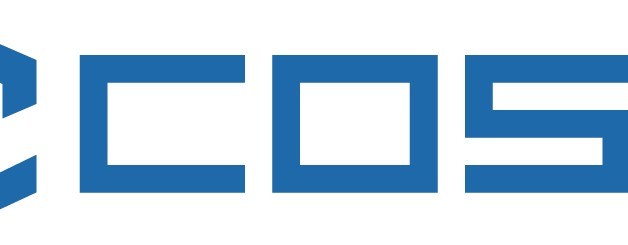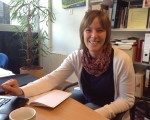The start of KnowEscape – story for the eMagazine of the eHumanities group KNAW Amsterdam
COST Actions are one of the oldest instruments for funding research collaboration in Europe, and this is still something one can feel. A COST Action has money exclusively for meetings, exchange, and conferences, and reimbursement takes place for an individual researcher who participates in one of those activities. The application procedure requires a work plan and a commonly defined research goal, similar to any other proposal writing. What makes a COST Action different from other collaboration funding instruments such as Network of Excellence – which is usually a ‘call mill’ for network activities – is that no money is transferred to any partner institution. People who are used to EC funding sometimes have a hard time to get their head around this. What a COST Action offers is a kind of claim to a specific ‘pot’ of money, which materializes only by making activities happen.
The competition to get a COST Action approved is quite fierce, it is a two-step process (short-long). In the application phase it feels like any other EC funded project: there is a Principal Investigator (Proposer) and a team of experts from different countries who work together at the proposal text. But once a COST Action is approved the run is not over: the representatives of COST in the various countries (called COST National Coordinators) need to make the countries sign the Action. They also nominate the candidates from this country for the Management Committee. I sometimes call this the ‘democratic moment’ of an Action. The supporters, including the PI, need to become active and sort of ‘reclaim their child’. Once nominated to the MC, the members act as champions for the goals of the Action in their own national communities. The intrinsic openness of Action for other researchers to participate in Working Groups, sometimes leads to Action with a Working Group of more than 100 members, although the funding allows for small-scale meetings of WG’s only.
There is – for sure for so-called TransDomain Actions, meaning interdisciplinary ones – a certain tension between creating a network of experts who have a chance to meet regularly and get to know each other and start collaborations, and the eagerness to widen up the network. One successful strategy over the last years of the COST office has been to require a policy that includes a so-called Early Stage Researcher. This is anybody who completed their PhD within the preceding 8 years. So, sometimes a situation might emerge where more senior experts, who usually have intense enough networks as it is, act as Hebammen for collaborations of researchers from following younger generations. What makes COST Actions very charming and a kind of chameleon under all instruments is that, despite quite firm rules how (and how much) monies can be spent, there is a large amount of freedom in running an Action. I have seen colleagues in the Netherlands using COST to produce a series of foundational publications (Jan Kok participating in ISCH A34 Gender and Well-Being), organize an exchange of knowledge around methods and the development of standards (Joris van Zundert, Chair of IS0704, Interedition), or set up collaboration around a database (Suzan van Dijk, Chair of IS0901 Women Writers in History).
For the Action I have the privilege to chair, KnowEscape, there has not been enough time yet to be able to determine in which direction the community behind it will go. We only started in June this year. We have already had two workshop events (out of the usual four per year), and have had our First KnowEscape Conference mid November in Aalto. What is already visible is that an Action can only live by the voluntary and unpaid work of its participants. To organize an event is a lot of work, most of it is mailing and communication. Either one is really interested in it, or nobody will invest time. This way, in the good, old-fashioned manner of autonomous science (here meant as Wissenschaft) an Action proceeds in a self-organized manner and relies on the altruism of all involved. In this sense let me repeat the call for participation in KnowEscape I send to my Dutch colleagues two weeks ago:
How to participate in KnowEscape?
0. It all starts with reading the workprogramme (MoU) – yes also COST Actions have this! http://knowescape.org/about/
1. Inform yourself about ongoing activities!
KnowEscape has a wordpress-based website where you can subscribe to an RSS feed. The average post-rate (= mail rate) is 4 mails per months at the moment. This might increase slightly but gives you an indication of the mail load. The website is our main vehicle for communication. Here you can also find a list of all participants, the work plan, the upcoming events and so on.
Twitter: @KnowEscape: I regularly tweet about Kowescape events, during events and when new stuff is on the website
2. Become member of a working group!
If you wish to become more active and in return more visible, then become a member of a working group. Remember that all work in KnowEscape is done voluntarily. So COST Action are altruistic, but the engagement rewards you in contact with interesting topics, research and persons! To give an example, Vincent Traag has done this, and has organized an event in Amsterdam on Complexity and DH – a quite timely topic. Another advantage of becoming a member is that it gives you access to the internal member site of KnowEscape. So, if you have aspirations to apply for a COST Action yourself, you can get behind-the-screen information there. Send me a CV, some lines of motivation and your preference for working groups and I will discuss this with the Steering committee and the MC. So far we have accepted all requests!
3. Join a national event!
Quite some upcoming events take place in NL, and COST events are usually free of charge. In October we organized a pre-satellite workshop to the UDCC conference. In November we had a workshop on ‘Complexity in the Digital Humanities’ (see other article in this eMagazine).
An upcoming event for which registration is still possible is: Simulating the Social Processes of Science, April 7-14, 2014 Leiden.
4. Propose an event!
If you have an idea about an event in the frame of our Action, contact one of the WG leaders or myself, and we might find a way to get KnowEscape involved.
5. Respond to open calls for STSM!
We have an open call for STSM. I will update the website in a couple of days, and put more info there how to apply. STSM are directly with preference to Early Stage researchers to allow them to visit another lab. Gender balance is another important issue here. You can also offer your lab as a hosting institution.
6. Get your research featured at the KnowEscape website!
Send me a blurb and a featured image if you have research relevant for KnowEscape! I’m more than happy to publish this.
7. Act as ambassador for KnowEscape!
Print out the flyer – on the about site – and take it too events. Point other colleagues nationally and internationally to KnowEscape.
Andrea Scharnhorst




